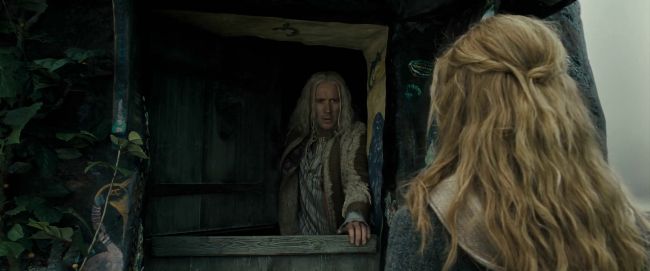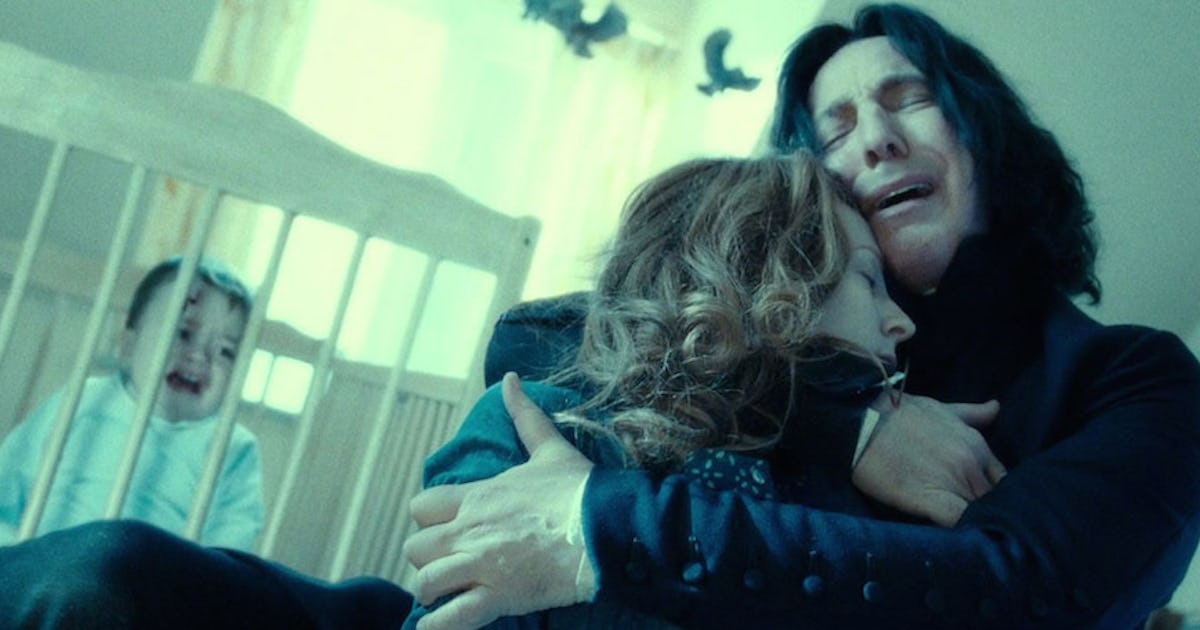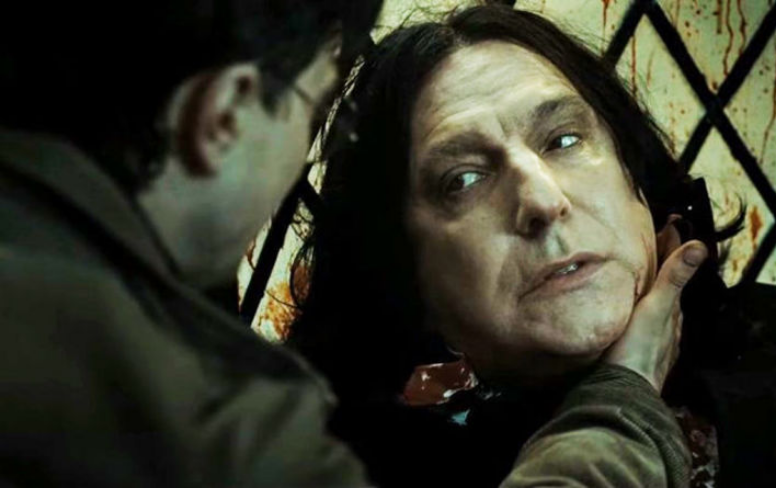Harry’s Role as Confessor and Confidant in Deathly Hallows, Part 1
June 28, 2021—One of the beautiful things about the Harry Potter books, for those of us who were young when they were being released, was that we were able to grow up with Harry. We could relate to him as he struggles to understand himself, those around him, and his place in the world, and with each new book we could see his maturity level grow with him/us.
Right up until the last book, that is, when Harry makes great leaps and bounds into adulthood that leave readers gasping for breath trying to catch up. While he still makes mistakes and has a few vestiges of childhood stubborn willfulness (his fixation on Hallows, anyone?), in many ways he seems more like a grizzled veteran than a fresh-faced boy of 17. And that is reflected in the way people treat him throughout the book.
Several characters much older than Harry, some of them complete strangers, unburden themselves to him (if reluctantly), confiding in him about things which in many cases have nothing to do with him. His sudden and polarizing position as de facto leader and symbol of those opposing Voldemort seems to inspire a spontaneous trust in others that we don’t see in previous books.
We are going to spend the next two blog posts discussing these moments, the motivations behind them, and their results. Part 2 will cover Harry’s conversations with Aberforth and Albus Dumbledore, while this post will discuss his conversations with others.
Remus Lupin
We begin with a reluctant confider, but one of the closest ones to Harry himself. Remus Lupin approaches Harry with the intention of hiding his wife’s pregnancy and joining the Trio as they do… something… the details aren’t important to him. He simply wants to get away from his life and is willing to follow the lead of his best friend’s son if it means escaping.
Harry, whose perceptiveness has been tested and honed in the previous year or two, realizes that something is off and eventually forces Remus to confess his plans and his guilt over fathering a child. Harry is perhaps a bit too strong in condemning Remus’s choices, and they depart on terrible terms. However, we discover later that Harry’s words inspire Remus to make the right choice and return to his family.
Xenophilius Lovegood
Xenophilius is a curious character. He only appears in two scenes, so we don’t have much time to get to know him before we’re asked to become emotionally invested in his situation and actions. His situation: His daughter (Luna) is being held hostage by Death Eaters to silence Lovegood’s support of Harry. His actions: He starts printing Voldemort’s anti-Harry propaganda in his magazine and then tries to turn Harry over to him. Lovegood desperately tries to justify himself to Harry in a very brief, very tense confrontation as the Death Eaters arrive. It’s less an unburdening as the outburst of a tortured soul who desperately wants his daughter back.
The very rapid influx of information leaves Harry (and the readers) a little unsure how to feel about the man, and he doesn’t have time to offer his opinion on the matter in any event. That is probably just as well, however, as it would be impossible for Harry to be objective — Lovegood’s revelations are too personal to Harry.

Griphook
Harry really only makes one attempt at achieving his goals through diplomacy in the series, with the goblin Griphook. His success is… debatable. But he does manage to find out a great deal about the attitudes and beliefs of the Goblin Nation, much more than the average “wand-carrier,” with very little prompting or even curiosity.
Griphook and Harry are at cross-purposes regarding the Sword of Gryffindor and plan to betray one another in order to secure it, so their relationship was always going to go south at some point. But Griphook also has a begrudging respect for Harry and almost trusts him based on Harry’s treatment of himself and of Dobby. So when Harry lends a willing ear, Griphook gives an impassioned speech about the plight of goblins and other non-humans in the Wizarding world that gives the Trio insight into his needs and desires. Using this information, they are able to identify with Griphook and show that they are ultimately on the same side, securing his cooperation.
Severus Snape
Severus Snape may have the deathbed confession to beat all deathbed confessions. Or anti-confession, I suppose, since the memories he entrusts Harry with as he dies actually clear his name. The reason he does this is obvious: Snape is the only one who knows that Harry is a Horcrux and must impart that crucial piece of information before it’s too late.
However, that fact could have been communicated with a single memory, the pivotal and chilling conversation when Dumbledore actually says, “The boy must die.” But Snape is not content only to give Harry information that impacts the war effort. He wants vindication and understanding in death that he never got in life.

He uses the last of his energy to prove that he is not the monster that most believe him to be, that he was fighting the Dark Lord and acting on Dumbledore’s orders the entire series. Further, he ensures that Harry knows that he watched over the Trio to the best of his abilities while they were on the run.
But Snape takes it one step further, seemingly for no other reason than to get the whole truth off his chest. He shares a great many deeply personal memories about his unrequited love for Harry’s mother, Lily. He shows how his relationship with her shaped him and motivated so many of his choices throughout the years. When you consider how much he dislikes Harry and resents his very existence, his willingness to divulge something so private says a lot about Snape’s state of mind and his regrets during the last moments of his life.
Stay tuned for Part 2, when I’ll tackle two of the weightiest conversations that Harry has in Book 7 – his talks with the Dumbledore brothers.



I抦 not that much of a internet reader to be honest but your blogs really nice, keep it up! I’ll go ahead and bookmark your website to come back later. All the best